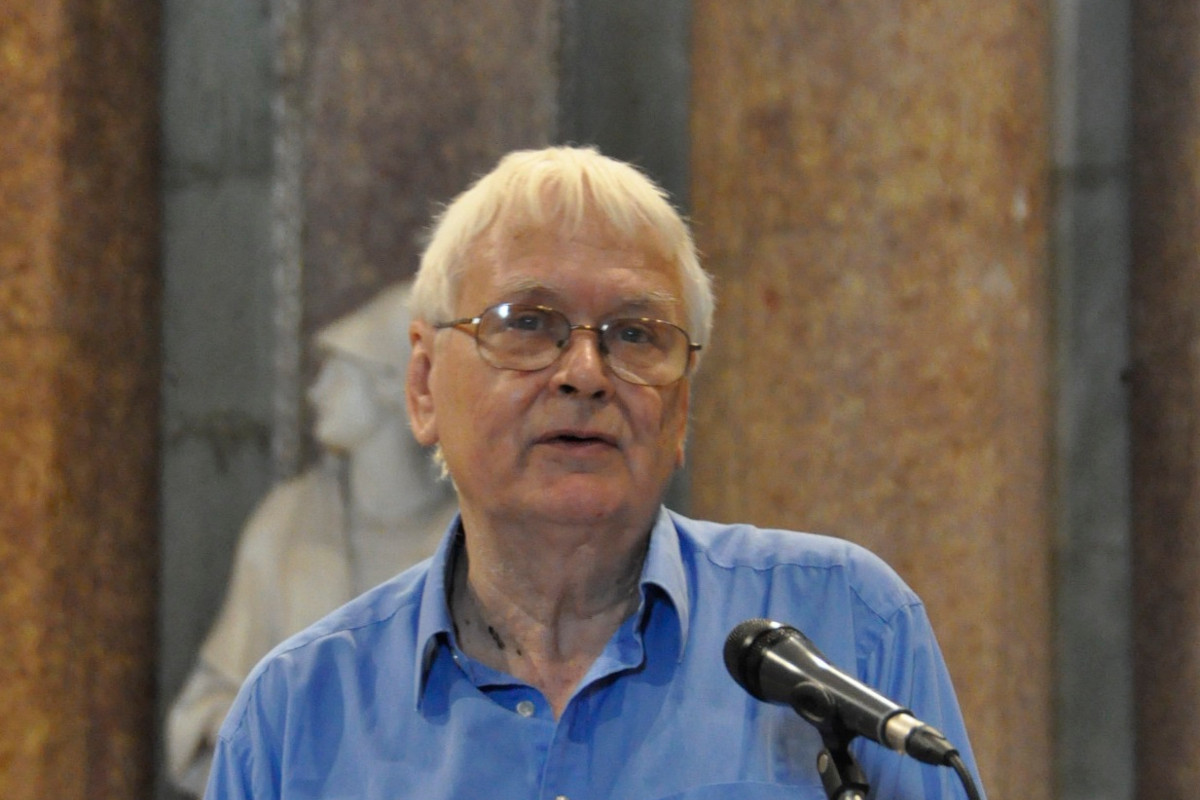Frontex flights and fatalities in the Channel
Topic
Country/Region
13 September 2024
Following the Channel shipwreck in November 2021, when at least 31 people drowned while French and British coastguards ignored their calls for help and failed to coordinate a search and rescue operation, European ministers met in Calais for crisis talks. Their response: have Frontex deploy an aircraft to “fly day and night to help the French, Dutch and Belgian Police” monitor the coastline for crossings. The French interior minister, Gérald Darmanin, said at the time: “We cannot accept that any more people die.”
Support our work: become a Friend of Statewatch from as little as £1/€1 per month.
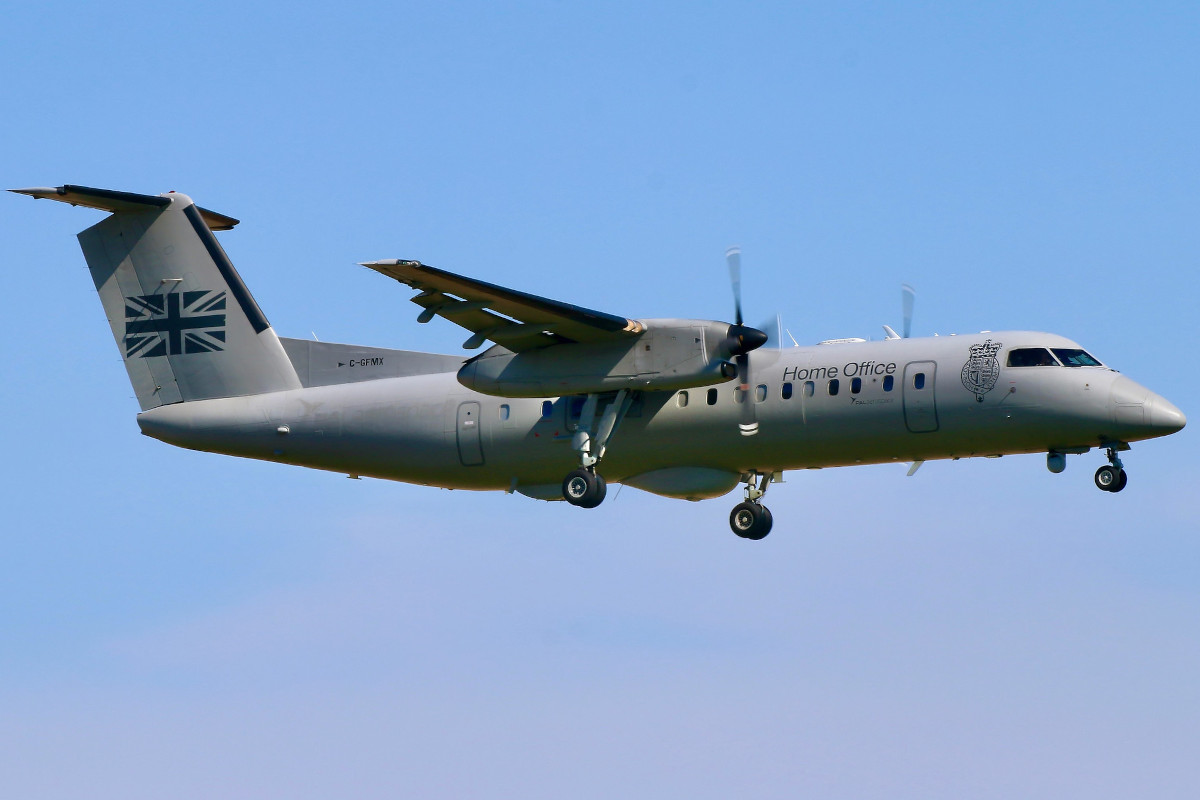
Image: A UK plane that conducts surveillance flights over the Channel (not as part of the Frontex operation). Colin Cooke Photo, CC BY-SA 2.0
Three days after Darmanin’s statement, a Danish air force jet landed in Lille to begin patrols, and Frontex’s Joint Operation (JO) Opal Coast was born. Since then, at least 102 people have died at the border of the UK and mainland Europe, according to journalists and activist reporting; 64 of those deaths were connected with attempted maritime crossings.
Despite the increased number of French search and rescue resources, more people have been dying in the Channel year on year. Alarm Phone attributes this phenomenon to increased overcrowding of the boats, a development driven by French police intercepting equipment such as boats and engines before it can reach the coast, and violently dispersing people during launch attempts. This mean there are fewer boats for the same number of expectant travelers and that launches occur in chaotic circumstances as people attempt to escape the police.
Despite being born out of the deadliest maritime disaster in the Channel since the sinking of the Herald of Free Enterprise in 1987, JO Opal Coast does not prioritise the safety of people’s lives at sea and may even contribute to the increased number of deadly incidents observed recently.
A censored version of Frontex’s 2023 Specific Activity Plan (SAP) for Opal Coast (pdf), obtained through an access to documents request, lists the aims of the aerial surveillance in the following order:
“...to detect and prevent unauthorised border crossings from the Belgian and French coast and from the territorial sea of Belgium towards the United Kingdom.”
“To tackle cross-border crime, including migrants smuggling and trafficking in human beings.”
“To enhance European cooperation on coast guard functions as well as to support SAR in accordance with international law.”
Further evidence of the low priority given to search and rescue operations can be seen in the flight records of the surveillance aircraft deployed by Frontex.
As previously reported by Statewatch, amongst the companies supplying aircraft to Opal Coast are Executive Airborne Systems & Platforms (EASP) from the Netherlands, which was contracted in 2022. A track of its Dornier DO328-100 from July that year shows the surveillance is overland in France, and takes place in the middle of the night.
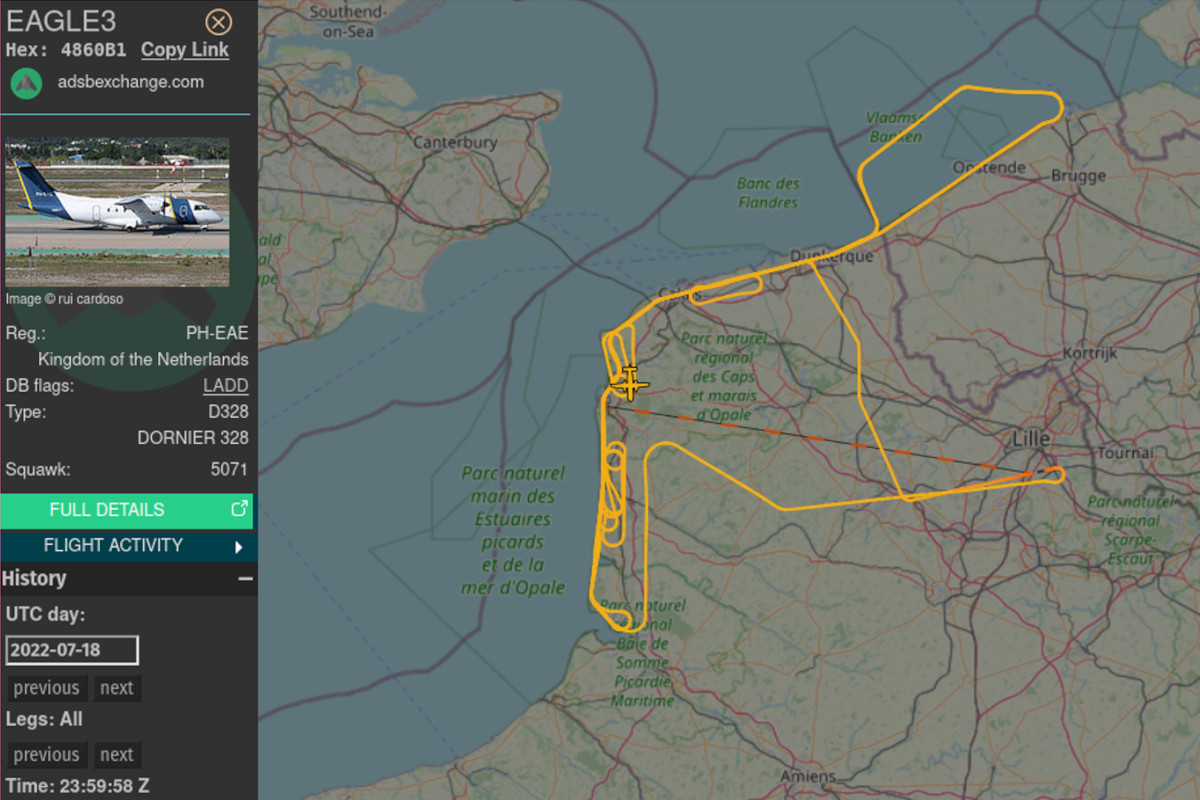
The plane primarily travelled over areas of dunes along the coast, where groups of people gather or bring equipment prior to attempting crossings, making it possible to direct police to intercept them.
The Frontex document describes this activity as:
“Early detect, report and track suspicious groups of persons and/or transportation means suspected of carrying persons and in possession of any equipment which may facilitate sea crossings in order to prevent unauthorised border crossings from [REDACTED] towards the United Kingdom…”
The plane does not regularly fly search patterns over the Channel in the mornings, when the majority of departures occur.
More recent flights in 2024 by Belgian company North Sea Aviation Services (which formerly flew surveillance flights for the UK’s HM Coastguard before 2Excel Aviation took over) show the continuation of this night time, overland patrol pattern which continues to be replicated today.
Notably, the track from a surveillance plane provided by Spain’s GrupAirmed on 2 and 3 September this year shows that it only patrolled the coast in the middle of that night.
On the morning of 3 September the deadliest shipwreck in the Channel since November 2021 occurred near Cap Gris-Nez. At least 14 people died.
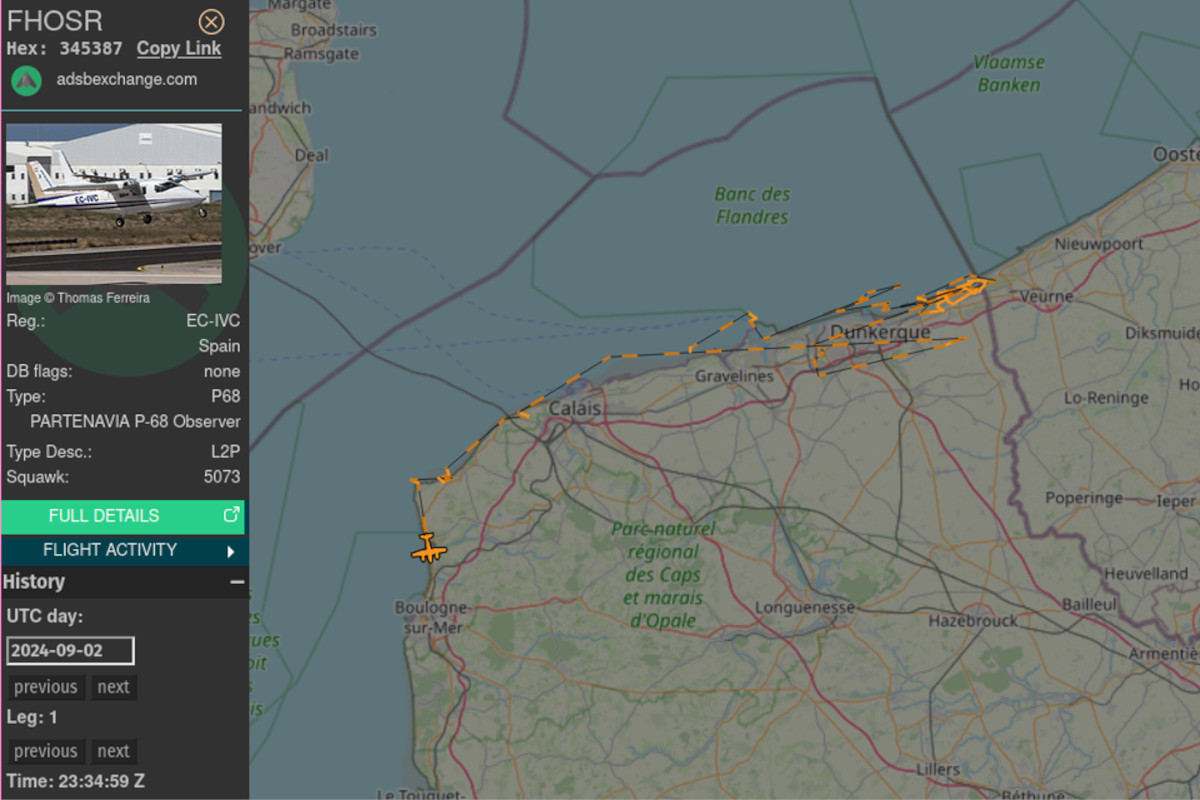
Frontex acknowledges in the Opal Coast plan that the “risk taken by migrants in their attempts to cross the Channel is high,” but goes on to say that “the number of reported fatalities in the area is low compared to other maritime routes used by irregular migrants.”
Just as in the Mediterranean, where Frontex’s aerial surveillance facilitates abuse while paying lip-service to assisting with search and rescue operations, the agency’s activity over the Channel serves to enable the police interceptions which have made crossings more dangerous.
Documentation
- Frontex, Specific Activity Plan JO OPAL COAST 2023 (pdf)
Author: Travis Van Isacker
Our work is only possible with your support.
Become a Friend of Statewatch from as little as £1/€1 per month.
Further reading
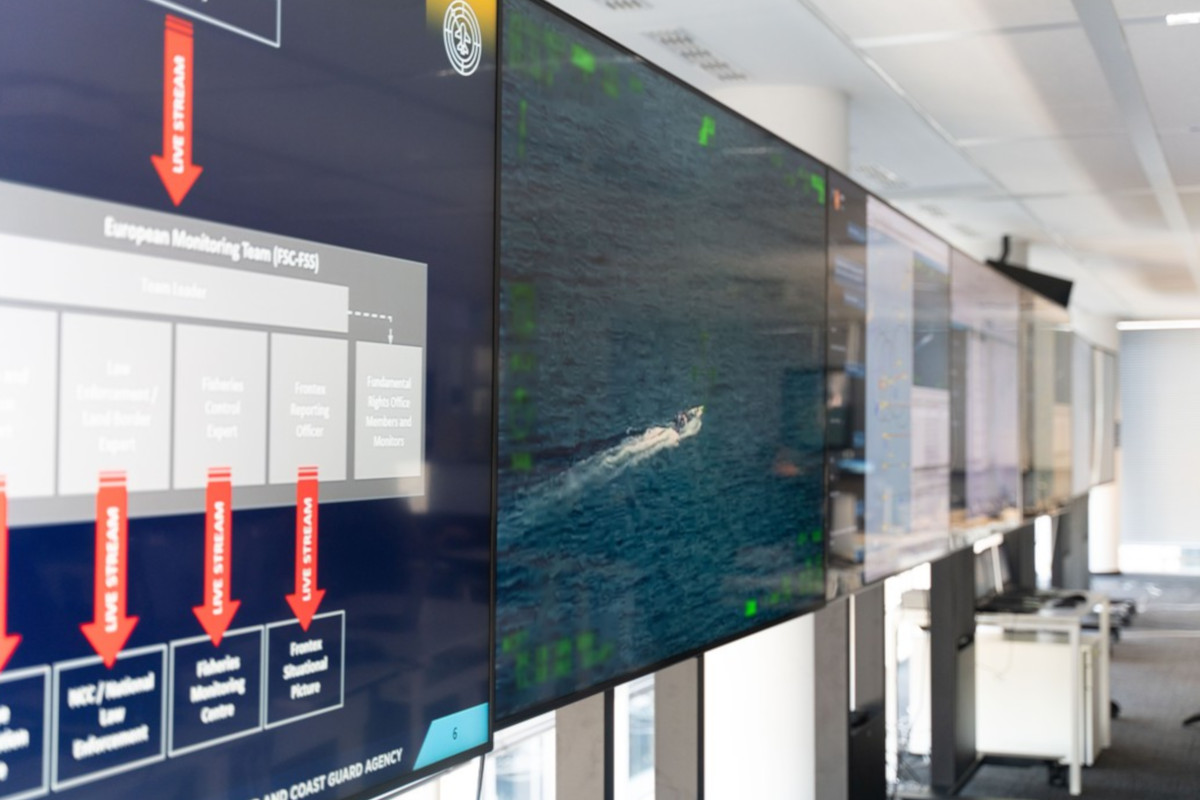
Greek border deaths: Frontex management board knew about "systematic" violations
An investigation by the BBC has put the Greek state’s deadly border policies back in the public eye – but there has so far been no mention in the press of Frontex’s operations in the country. Documents seen by Statewatch show that despite warnings from its own fundamental rights officials, Frontex’s senior staff and management board did nothing to halt the agency’s operations in Greece. Suspending or terminating operations is a legal obligation when rights violations “are of a serious nature or are likely to persist.” A case before the Court of Justice of the EU is seeking an order to halt Frontex’s Greek operations, with an appeal filed in January still pending.

Frontex collaboration with Libya: “we call them and try to persuade them to take them back”
The EU Border and Coast Guard Agency, Frontex, has been accused of aiding the return of migrants who have fled Libya back to the country, and to possible torture and blackmail. Border guards who have worked for Frontex, speaking to journalists from the Swedish television programme Mission Investigate, by Sveriges Television (SVT), revealed just how close contact with groups in the country is. Meanwhile, a rescue mission in the Mediterranean being documented by Mission Investigate was fired upon by the so-called Libyan coast guard.

Frontex: big spending on aerial surveillance
UK, Austrian and Dutch aviation firms share in multimillion contract for maritime surveillance operations, including surveillance of the Channel.
Previous article
Hundreds of groups call on EU to uphold civic space, rights and democracy
Next article
Spotted an error? If you've spotted a problem with this page, just click once to let us know.

